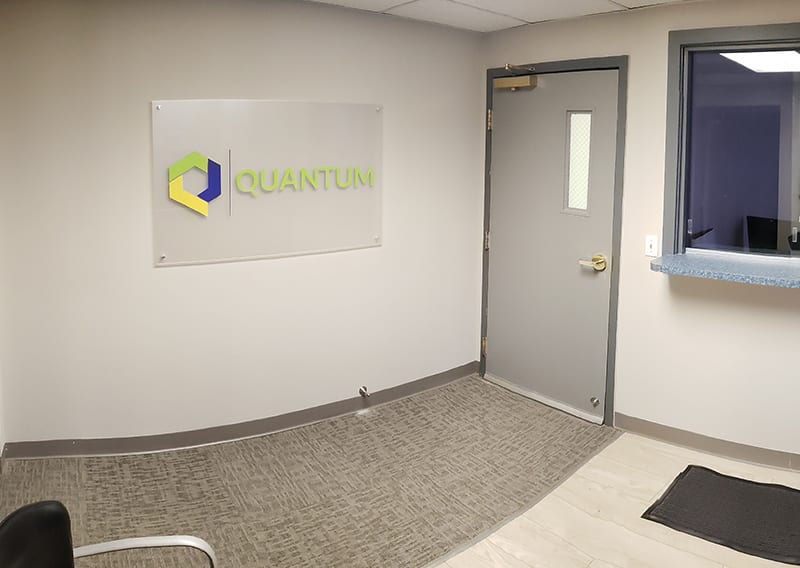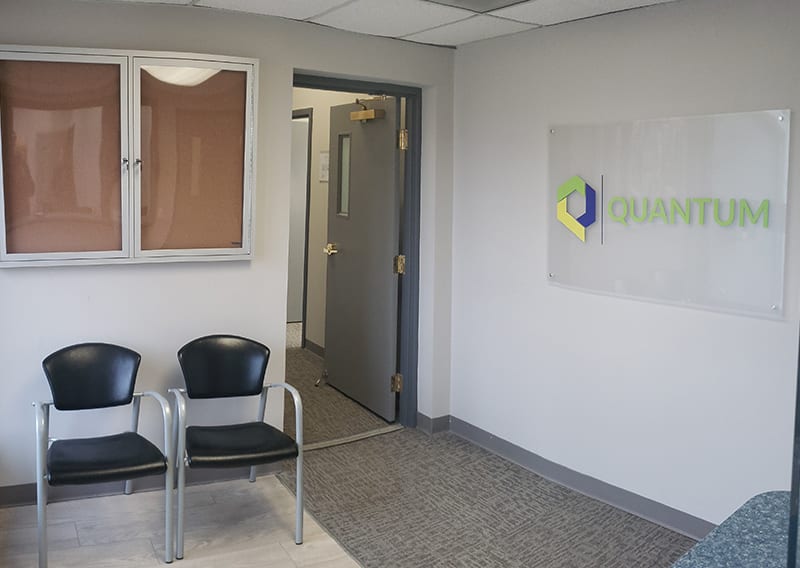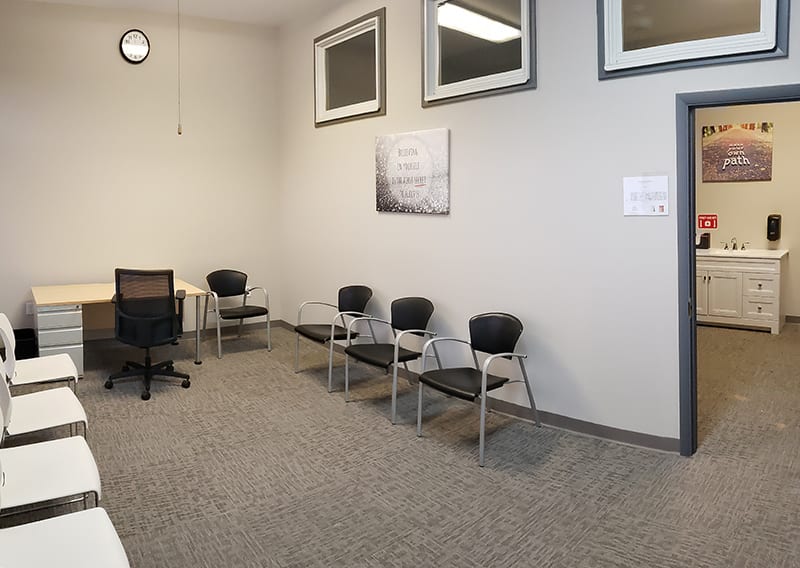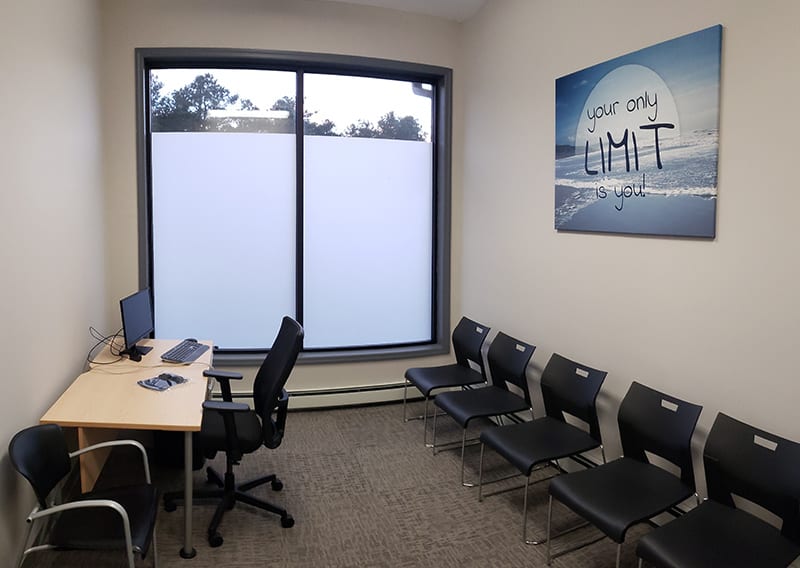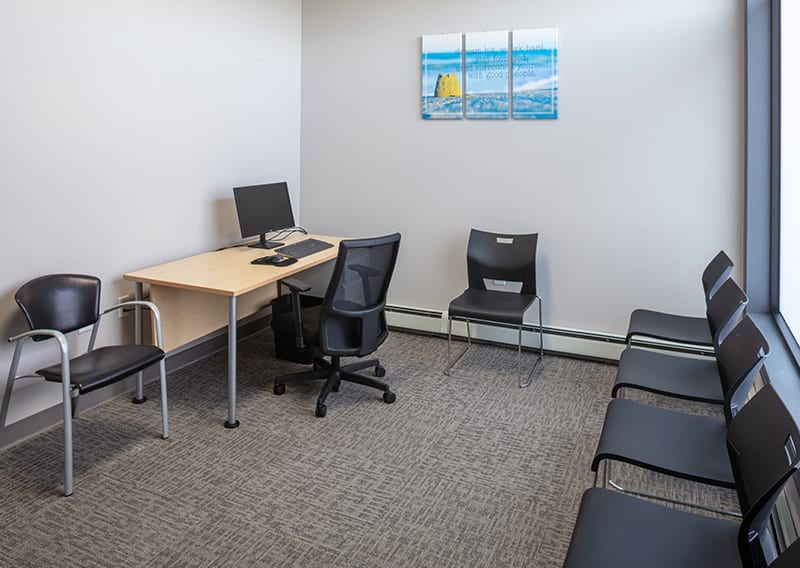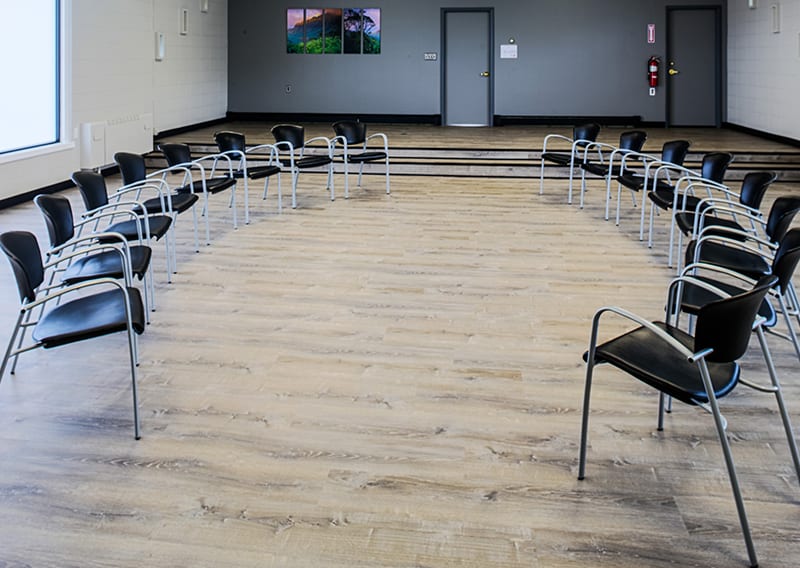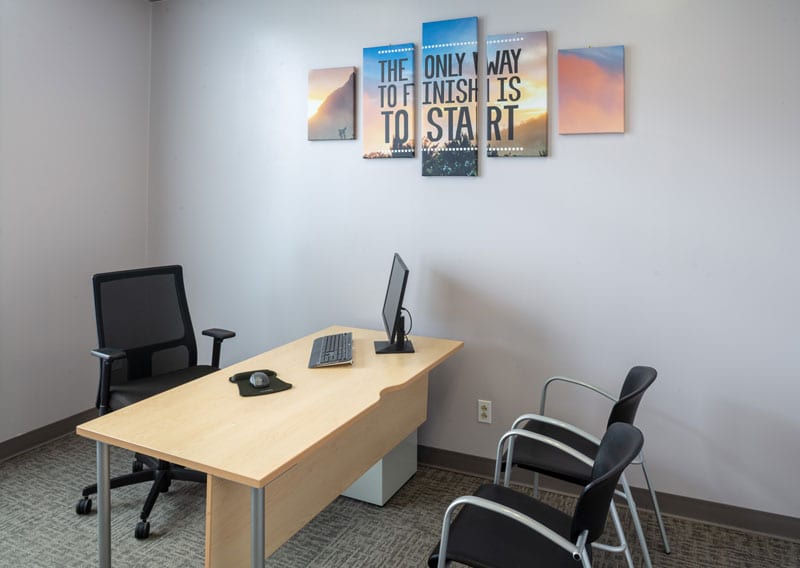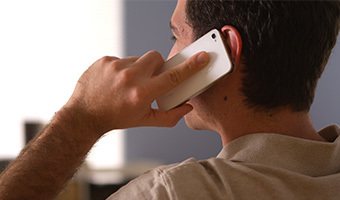Our facility is a warm, inviting, cozy, and secure environment that provides the perfect level of safety, comfort, and privacy as you receive treatment and get on your path to wellness. We’ve designed our space to allow for a low-stress environment where you can focus on your well-being.
Given the concerns of the COVID pandemic, we’re ensuring procedures are followed to create a clean environment for our patients, staff, and visitors. We’ve gone above and beyond CDC and New Jersey State guidance to design our cleaning and disinfecting protocol so that there is no question of the cleanliness and safety of our facility.
You’re here to get well and our priority is maintaining a safe, clean, peaceful, and welcoming environment for you to do just that.
To see our response to Covid-19, click here.
Photo Gallery
Click photos to enlarge
Are You Ready to Begin Your Journey to Recovery?
You could be completely covered. Verify Your Insurance Today.
The Quantum
Process Outpatient Rehab NJ
1. Make the Call
Contact our Quantum Team at
(609) 993 – 0733 to get started.
2. Complete
Your Intake
This streamlined process includes a series of questions and discussion of your unique needs and goals.
3. Get the Best Care Team Possible
After your intake, you’ll meet your Care Team, a group of amazing professionals dedicated to helping you make recovery reality.
4. On-Going Support
After you meet your Care Team, you’ll start to receive treatment based on a Care Plan that’s designed to help you achieve and sustain your recovery.
What Is Naltrexone?
Naltrexone is an FDA-approved prescription medication formulated to treat alcohol use disorders and opioid use disorders in a supervised medication-assisted treatment (MAT) program. This medication comes in a daily pill form of naltrexone (oral naltrexone) with brand names Depade or ReVia, or a monthly intramuscular extended-release injectable formula called Vivitrol.
Naltrexone is an opioid antagonist, meaning it binds to the opioid receptors in the body when used to treat opioid withdrawal and addiction. Naltrexone blocks the pain-relieving, sedative, and euphoric effects opioid drugs produce. This makes it less enticing to use these drugs, stopping the person from getting high while also blocking painful and distressing withdrawal symptoms and drug cravings. Naloxone is also part of a drug called Suboxone, a partial opioid agonist made from a combination of buprenorphine and naloxone used as a replacement medication.
When it is used for alcohol addiction, the formulation of naltrexone works by binding to the endorphin receptors in the body, which blocks the pleasant effects of alcohol while simultaneously reducing cravings. Drinking alcohol while on naltrexone will still cause impairment without the “buzz.”
Naltrexone Effects
Common effects of naltrexone for opioid addiction and alcohol use disorder are:
- Nervousness
- Dizziness
- Flu-like symptoms
- Changes in appetite
- Nausea/vomiting
- Sleepiness
- Headache
- Muscle cramps
- Insomnia
There are also less common severe side effects of naltrexone therapy like:
- Increased heart rate and blood pressure
- Reactions at the injection site like pain, swelling, and lesions
- Serious allergic reactions and allergic pneumonia
- Liver damage
- Depression
- Suicidal thoughts
- Risk of an overdose in the case of an opioid relapse
Signs of Naltrexone Abuse and Addiction
Naltrexone has a very low potential for abuse or addiction because it blocks the effects of opioids and alcohol without producing a high or pleasant sensation. Unlike methadone and other replacement medications, naltrexone is not considered addictive and can be prescribed by any medical professional who can prescribe any other medication without any special training.
Naltrexone Withdrawal Symptoms
Naltrexone does not cause withdrawal symptoms when you stop taking it. The only risk of experiencing withdrawal symptoms concerning naltrexone use is if you were to use opioids while on naltrexone or if you were to begin your naltrexone treatments before detoxing from alcohol or opioid drugs. In this case, the naltrexone would force an immediate withdrawal to happen in the body.
Long-Term Side Effects of Naltrexone Abuse
No known long-term issues are directly associated with the long-term use of naltrexone when prescribed to treat alcohol addiction and opioid drug abuse. That being said, in some cases, this medication may cause liver injury that could worsen and become dangerous if left untreated. For this reason, monitoring the liver through blood tests is advised, and if your skin or eyes begin to look yellow or if you have severe stomach pain, contact your doctor immediately.
Naltrexone Addiction Treatment
Substance abuse issues should be treated in an integrated program in a professional detox and rehab center, with mental health care, clinical care, and behavioral health treatments in a comprehensive continuum of care customized to each patient’s needs.
Quantum treatment center is an outpatient rehab center with levels of care including partial care day programs, intensive outpatient programs, and other customizable outpatient programs that go hand-in-hand with a Vivitrol medication-assisted treatment program. You can live at home or in a sober living facility and access treatments like:
- Dual diagnosis care for co-occurring mental health issues
- Traditional behavioral therapy like cognitive-behavioral therapy and dialectical
- behavior therapy
- Holistic treatments like yoga, meditation, art therapy, and music therapy
- Evidence-based treatments like family therapy, individual therapy, or counseling
- Naltrexone treatments to help with alcohol and opioid relapse prevention
- Aftercare support with individual therapy, case workers, and social services
If you are seeking treatment for addiction to drugs and alcohol or learning more about how we treat the psychological, social, and physical components of addiction together in one comprehensive program, call our team today and take the first step down your road to recovery.

